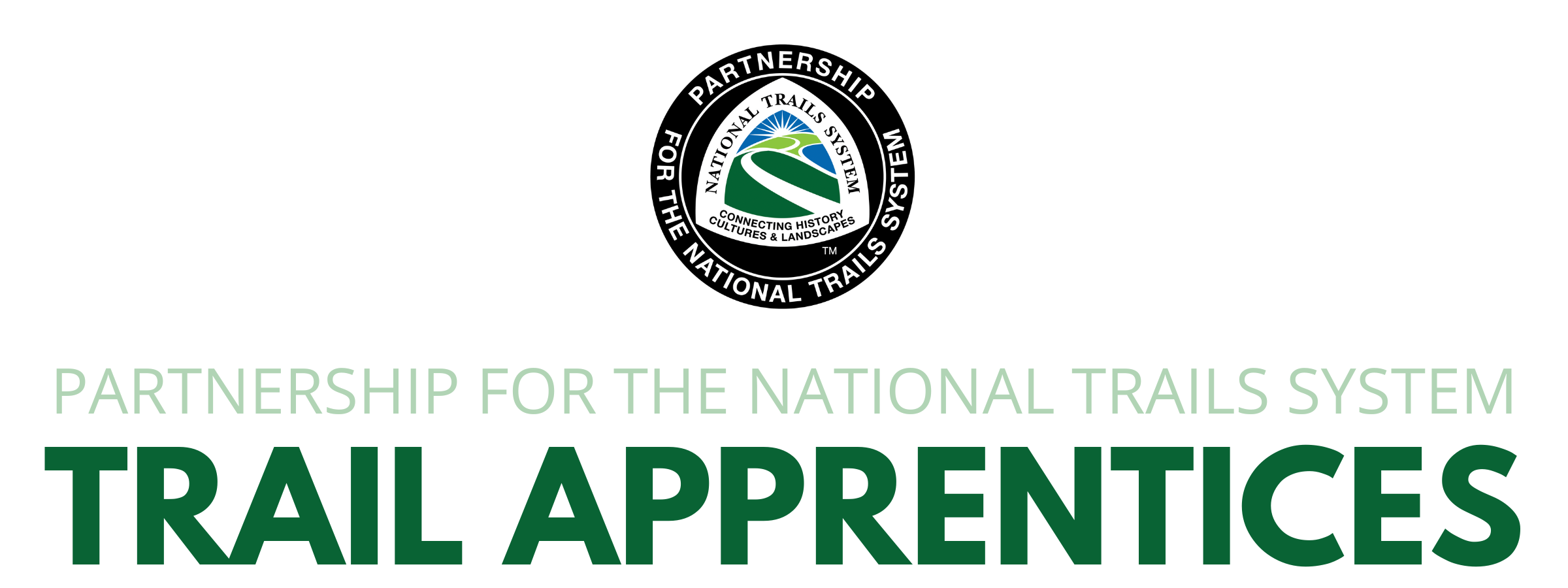
The Trail Apprentice Program provides learning, leadership development, peer exchange, and networking opportunities for students and young professionals between the ages of 18 and 28 who are considering careers in trails and public lands. PNTS is excited to see such enthusiasm for National Trails and we’re pleased to introduce the 2025 PNTS Trail Apprentices. We are excited to have these young leaders join the trails community at the National Trails Lands Summit and Training in San Antonio, Texas, October 19-23, 2025.
Madeleine Diaz (She/Her)
Emerson, New Jersey
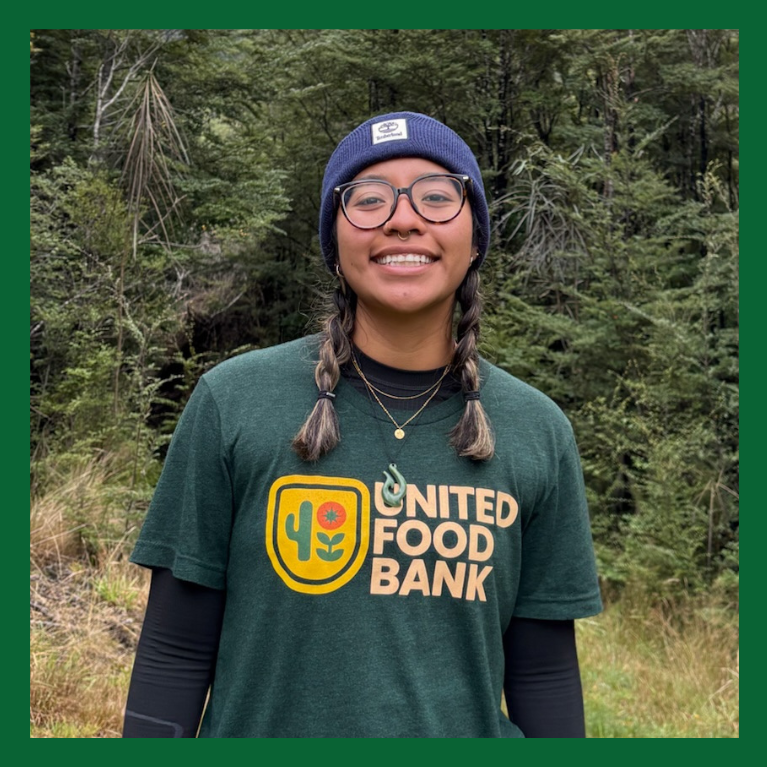
Biography
Madeleine Diaz is entering her senior year of undergrad at the University of New Hampshire where she is studying Wildlife and Conservation Biology with a minor in Animal Behavior. As a first generation Mexican-American woman, integrating cultural backgrounds, accessibility, and education into wildlife research was always a priority to her and has guided her previous experiences and interests. Growing up in New Jersey, she has always longed for the opportunity to explore the outdoors within a community, which inspired her to go to New Hampshire to gain the knowledge, resources, and skills to make that goal into a reality for many across the country. Madeleine is deeply passionate about community engagement and environmental education, and has worked in both Washington and Maine incorporating research and ecology into outdoor education. She is also greatly interested in wildlife management, monitoring, and behavior and has assisted with research conducted both domestically and internationally. She is ecstatic and honored for the opportunity to collaborate with a group of motivated individuals and to learn all she can in order to not only reach her own goals but also those of the community around her.
Madeleine’s career aspirations
I aspire to pursue a career focused on wildlife conservation, research, environmental education, and the intersection between human and wildlife behavior. I have had the privilege of working in a variety of different positions in the environmental field and dream of combining my experiences into a career that would allow me to pursue research in animal behavior with education and community engagement. This goal is deeply intertwined with National Trails and other public lands as understanding wildlife behavior and conservation as well as our own relationship to these lands is crucial to trail stewardship.
Why do you care about trails?
Growing up in an urban area with minimal access to green spaces, I had a great passion for the environment but little to no representation or direction to guide me towards my goals. I wish to provide the resources and opportunities to people from historically marginalized backgrounds to form a connection to the land that surrounds them. As a first generation Mexican-American woman, I heard my parents talk about the land they grew up in with familiarity and love. Being forcibly displaced to a new country, they were unable to pursue their love and form a relationship with this new area due to accessibility, financial, and transportation constraints. I care about trails because they are a unifying entity for all and provide a space to form relationships, learn, and enjoy, no matter of background or education.
What is a memorable trail experience you’d like to share?
One of my most memorable trail experiences was witnessing a deer and her fawn on the side of a trail in Washington state. I had previously only seen deer around suburbs in New Jersey, dodging cars and grazing on manicured lawns, and it was absolutely magical seeing them in their natural environment free of the development and traffic. This experience invigorated my passion for wildlife conservation as I wish for everyone to be able to witness this quiet beauty.
What drew you to the Trail Apprentice Program?
I was drawn to the Trail Apprentice Program because it combines my appreciation for nature with community engagement and environmental justice. Accessibility to green spaces has always been an important value of mine, and this program allows me to connect with others who have similar passions and motivations to make lasting change. I was also interested in the opportunity to collaborate with individuals with a wide range of perspectives, ideas, and backgrounds. I am incredibly ecstatic to hear their connections to the land while meeting professionals, building new skills, and gaining hands-on experience.
Sophie Huss Llenos (She/Her)
Rochester Hills, Michigan
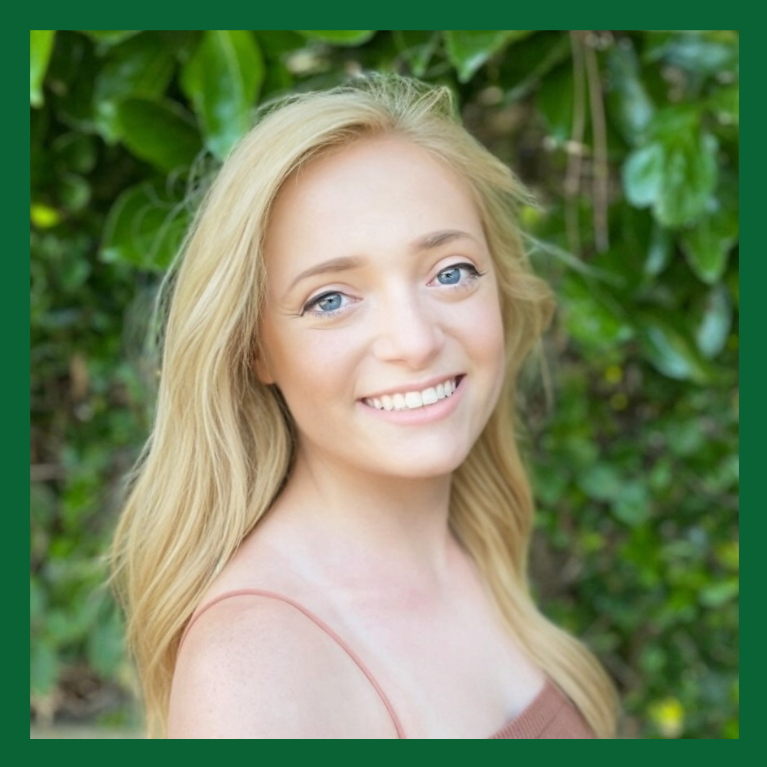
Biography
Sophie Llenos is a settler guest on Turtle Island, originally from Toledo, Ohio, and now living in Michigan. Growing up following her civil engineer father around construction sites, Sophie developed an early fascination with how humans shape the landscape. Family camping trips to Hocking Hills deepened her love for geology, while volunteering with Metroparks Toledo sparked her appreciation for the intersection of nature, history, and community. Sophie earned her B.S. in Geology with a minor in Anthropology and is now a PhD candidate in Earth and Environmental Science at Michigan State University. Her collaborative research aims to build capacity for ethical engagement in land-based industries. As Assistant Chair of the Buckeye Trail Association’s Development Committee, Sophie supports fundraising and National Scenic Trail advocacy efforts. As Board Secretary for the Porter Voice Collective, she collaborates on initiatives that support human rights and workforce equity in the global mountain trekking tourism industry. Through the American Geophysical Union’s Thriving Earth Exchange, she led international research informing decision-making around a controversial mining operation. Sophie has held various education and programming roles in museums, park systems, and postsecondary institutions. She holds graduate certificates in Adult Learning, Indigenous Studies, Museum Studies, and Nonprofit Leadership, with additional certifications in Community Engagement and Sustainable Tourism in progress. At her core, Sophie believes that all beings deserve a healthy home, and future generations should have access to the cultural and natural wonders we steward today. She is thrilled to bring her skills and passion to PNTS and grow as a leader in collaborative trail stewardship.
Sophie’s career aspirations
I aspire to serve as Executive Director of a nonprofit at the intersection of trail stewardship and environmental justice. In my work as a community-based geoscience education researcher, I have experienced the power of listening to and amplifying community voices – especially those of the land’s original stewards – in education, advocacy, and decision-making around National Trails and other public lands. I am guided by questions like: “What are the stories of these places?”, “Who needs to be at the table?”, and “Who do these systems truly serve?” My long-term vision is that outdoor spaces are not just sites of recreation, but pathways to education, reflection, connection, stewardship, and justice.
Why do you care about trails?
My connection to trails and the outdoors is both deeply personal and central to my work. From childhood hikes and family camping trips to backpacking in the Grand Canyon, trekking to Chomolungma (Everest) Base Camp, and hiking hundreds of miles on the Buckeye Trail, I have experienced how trails foster stewardship, community, and well-being. Over time, my approach has shifted from chasing miles and personal records to listening, learning, and engaging reciprocally with the lands I traverse. Trails are places where I have learned about myself, humanity, and the natural world (of which we are a part), and I am committed to their stewardship so that future generations can experience them in their own meaningful ways.
What is a memorable trail experience you’d like to share?
One of my most memorable trail experiences happened when my husband proposed on the very trail where we had our first date, in a park where I used to work! While we were married in Aotearoa (New Zealand), we celebrated our wedding back home in the same park, just steps from the trail where he proposed. That trail will always hold a special place in my heart!
What drew you to the Trail Apprentice Program?
What excites me most about the Trail Apprentice Program is the chance to grow within a supportive cohort of emerging leaders who share a passion for trails and environmental stewardship. As an early-career professional preparing to graduate in 2026, I am eager to connect with peers, learn from seasoned professionals, and strengthen my skills. My experiences with the Buckeye Trail Association and Porter Voice Collective have shown me the power of collaboration in outdoor access and environmental justice efforts, and I see this program as a unique opportunity to deepen those skills while building lasting relationships. Beyond professional development, I believe trails are vital pathways for cultural connection, environmental stewardship, and community building, and I look forward to carrying that vision forward alongside my fellow Apprentices.
Chandler Sam (He/Him)
Washington, D.C.
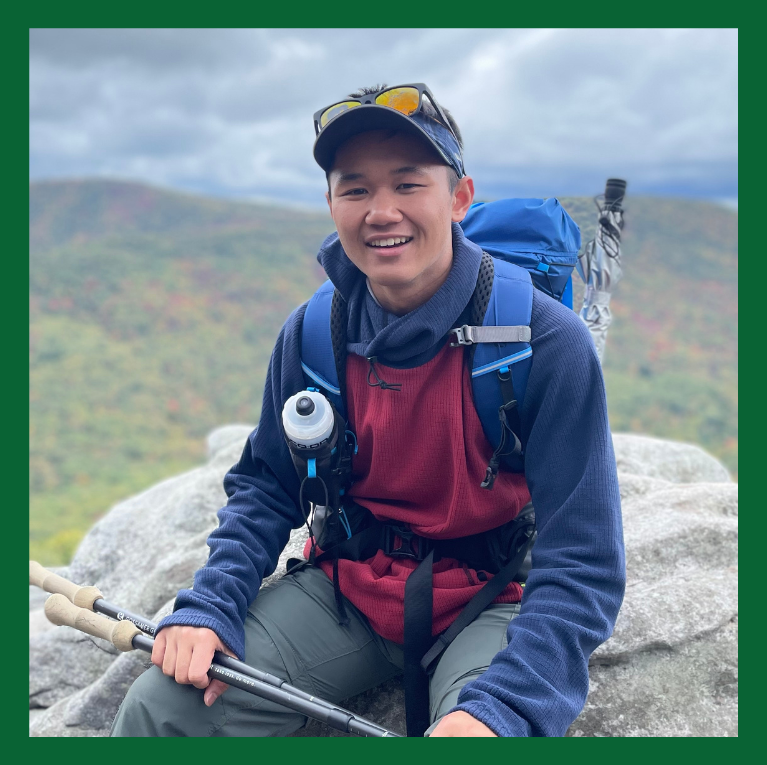
Biography
Chandler Sam grew up in Olympia, Washington, where the abundance of mountains and forests spoiled him. He attended George Washington University, where he studied English and Ecology and was a student researcher for Dr. Betsy Von Holle. Between his sophomore and junior years, Chandler thru-hiked the Appalachian Trail, cementing his belief that a career in the environment was the path for him. Since graduating, Chandler has been a post-grad fellow at Dumbarton Oaks Park Conservancy in Washington, DC, a nonprofit dedicated to preserving America’s last remaining wild garden designed by Beatrix Farrand, America’s first female landscape architect. When he is not hiking, Chandler is eating chocolate and rooting vigorously for Seattle sport teams.
Chandler’s career aspirations
I plan to pursue a career in environmental law, with a focus on land use. As urbanization continues across the United States, threats to our public lands will increase. Benton MacKaye, the father of the Appalachian Trail, identified this trend in the 1920s and sought to combat it through the creation of a 2,000-mile hiking trail. I plan to use environmental law to combat this continuous threat by either preserving or establishing new public land spaces.
Why do you care about trails?
Trails offer a respite from the stresses of everyday life. Living in Washington, DC, I find myself walking, running, or biking through Rock Creek Park to alleviate any feelings of angst that I may have. I have benefited from this, and I want to ensure that others can have and continue to have this experience everywhere.
What is a memorable trail experience you’d like to share?
The minute I finished my final sophomore year exams, I flew down to Georgia and started a NOBO thru-hike on the Appalachian Trail (Class of 2022)! Standing on Mt. Katahdin is an unforgettable moment; still, ultimately, my favorite memories of the trail always lead me back to the fantastic people I met along the way who welcomed me into their homes, let me walk with them for a few days, and supported me through tough stretches of the trail (shoutout to my hiking partner Margaritaville).
What drew you to the Trail Apprentice Program?
The Trail Apprentice Program appealed to me because I saw the opportunity to deepen my understanding of public-private partnerships while simultaneously exposing me to new people with different perspectives on public lands. I am also interested in the behind-the-scenes work that goes into preserving and maintaining our National Scenic Trails, particularly the Appalachian Trail!
Andrew James Shults (He/Him)
Los Angeles, California
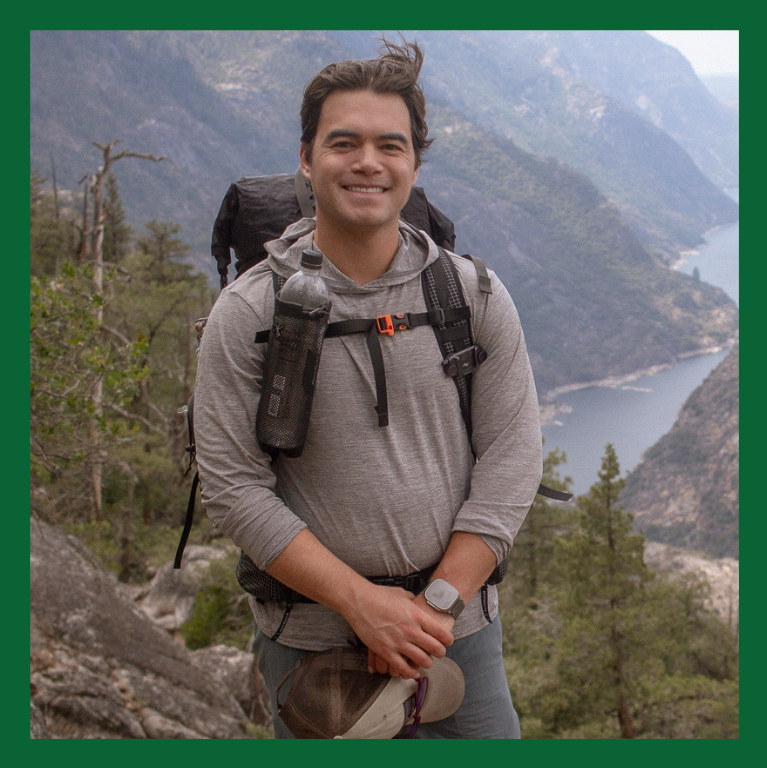
Biography
Growing up just outside of Los Angeles, Andrew James Shults first started his hiking journey with his Boy Scout troop. It was on trips to the San Gabriel Mountains, the Mojave, and the Pacific Ocean that helped instill in him a deep love of nature. After heading to the Midwest for college, he returned to LA reinvigorated to explore the outdoors. Since then, he’s hiked, camped, and backpacked around much of the west, and has tackled notable hikes including the John Muir Trail, Lost Coast Trail, Trans Catalina Trail, Grand Canyon of the Tuolumne, and Mount Whitney. Professionally, Andrew writes for “Better Trail”, a digital publication reimagining outdoor gear research with a deep emphasis on sustainability. He focuses on gear testing, reviews, and educational guides for outdoor enthusiasts. He also writes and photographs for “Modern Hiker”, creating trail guides and nature-focused content for one of the most-read hiking resources on the West Coast. On the storytelling side, his piece, “In My Heart All Along,” was featured on the award-winning podcast, “The Dirtbag Diaries”. Additionally, he runs GoForth LLC, an outdoor media and consulting company helping people navigate the ins and outs of the outdoors. Finally, he is currently working on his debut book, “Day Hiking Los Angeles, 2nd Edition”, forthcoming from Mountaineers Books. Andrew holds a BA in Biological Chemistry with a minor in Environmental Studies from Grinnell College and an MS in Information Systems and Technology from Claremont Graduate University.
Andrew’s career aspirations
I want to continue to grow my career in the outdoor media and storytelling space, both in writing and photography, as well as expand into filmmaking. Public Lands as a whole, but especially National Trails, are full of untold and overlooked stories that deserve a spotlight, and through my work, I plan on giving these places a platform.
Why do you care about trails?
Trails are a fundamental avenue for accessing, enjoying, and fully immersing ourselves in nature. At their most basic, they allow us to step beyond the bounds of human development and into wilder, more untamed spaces. But beyond that, trails offer the room to reflect, work through challenges, reconnect with our values, and simply appreciate the world’s beauty. I’ve learned so much about myself and my priorities walking on a narrow strip of dirt through the wilderness. Trails also help tell the geological, historical, and cultural story of our country. By advocating for their care and protection, we help make sure that their legacies—both triumphant and painful—are not lost or forgotten.
What is a memorable trail experience you’d like to share?
I remember waking up at 2 a.m. on the final morning of my John Muir Trail thru-hike to catch a sunrise summit of Mount Whitney. As I worked my way up the switchbacks to Trail Crest, the stars and moon shone so brightly that I barely needed my headlamp. I then jogged the final mile to the peak, just in time to watch the light illuminate the world around me. The vastness of the surrounding mountains and the feeling of relief and accomplishment at completing the trail are something I’ll never forget.
What drew you to the Trail Apprentice Program?
I was drawn to the Trail Apprentice Program for the opportunity to connect, learn, and collaborate with others in the public lands and trails community. The program aligns closely with my passion for nature and wilderness, as well as my career goals in outdoor media and storytelling. Through the TAP, I hope to grow my career and meet passionate individuals in the field, all with the support of PNTS.
Maeve Goldberg (She/Her)
Asheville, North Carolina
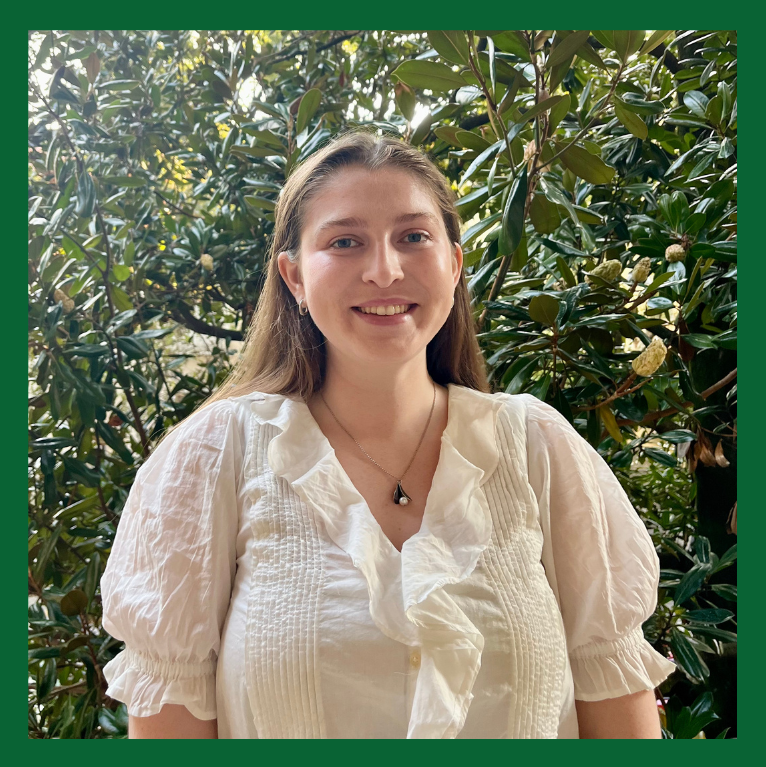
Biography
Born and raised in Ashville, North Carolina, Maeve Goldberg is a recent graduate from University of North Carolina at Chapel Hill where she majored in public policy and geography with a minor in sustainability studies. Maeve’s interest in climate and the environment and their nexus with food systems led her to pursue multiple policy internships in Washington, D.C., including with the House of Representatives Committee on Agriculture. Working with the Committee, she gained firsthand experience with the federal legislative process and developed an interest in rural policy. In the two years since, she has worked as a Program Associate at MDC, supporting mission-based rural nonprofits to build organizational capacity and a national philanthropic network to deepen their members engagement with rural communities. Outside of her professional interests, Maeve enjoys reading mystery novels, vegan cooking, and being outdoors with her family and friends.
Maeve’s career aspirations
Going forward in my career I want to continue to work at the intersection of environment, public policy, and rural communities. My experience with community-centered environmental policy is what sparked my interest in the work of preserving and stewarding public lands, and the National Trails System represents some of our most treasured landscapes and cultural heritage sites that can offer so many both tangible and intangible benefits for the communities living alongside them.
Why do you care about trails?
I grew up hiking in the mountains of Western North Carolina and have had incredible experiences with the National Trail System, especially when hiking parts of the Appalachian Trail with my family. Wherever I’ve lived or traveled, trails have continued to be the way that I connect to place and the natural world and I want to help ensure they remain accessible for people of all backgrounds to experience and enjoy as I have.
What is a memorable trail experience you’d like to share?
One of my most memorable trail experiences was bike riding the Virginia Creeper Trail with my family. Virginia Creeper is a rail trail flat and wide enough that even as as a very unskilled biker, I was able to easily enjoy all the views of the Blue Ridge. VCT also has lots of historic train infrastructure and stations that have been preserved, as well as local restaurants where we could stop for ice cream and French fries right along the trail.
What drew you to the Trail Apprentice Program?
I was drawn to the chance to connect with both young professionals and experienced leaders in conservation and public lands while learning more about PNTS and trail policy. I’m especially interested in how balancing accessibility, cultural and natural history, and environmental stewardship can inform broader work in conservation and environmental justice.
Savannah Talamo (She/They)
San Antonio, Texas
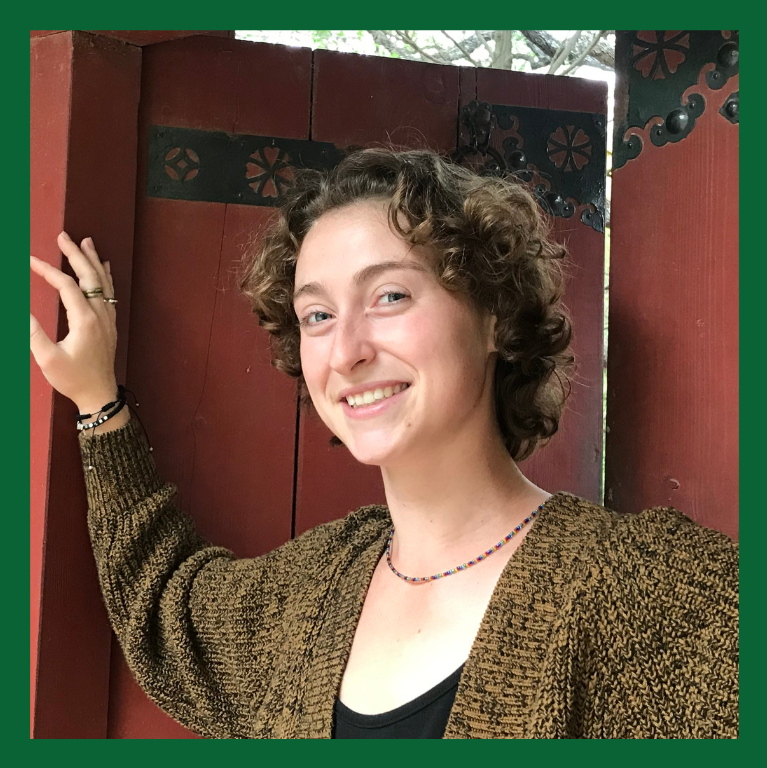
Biography
As nature baby from Upstate New York, I grew up camping and hiking and exploring nature’s treasures. I was raised in a family that appreciated all life, no matter how small (couldn’t even kill a spider in the house). This love continued into my early adulthood when I had to start thinking about a career. I went to Texas A&M University- San Antonio for a BS in Biology, I thought to become a veterinarian. However, while attending, I had the opportunity to participate in research assessing mosquito distribution/abundance and the changing land-use of urban areas. It inspired my desire to work in the research field, and evaluate the correlation between the human community and how it affects other species. After college, I got into wildlife rescue and rehabilitation, which helped me see the other side of human impact, a positive one on the ecosystem. This position led me to realize working in the field and advocating for these animals was where I wanted to be. It reinforced my focus on educating the public on how to accept these animals into their spaces; we built homes on top of theirs after all. That’s what drove me here today, that relationship between the people who feel as I do and the people who don’t know how cool it all is, yet. I enjoy hiking, reading, exploring new coffee shops, and road trips to far away places.
Savannah’s career aspirations
I have worked and volunteered at a wildlife rescue and rehabilitation center for a few years, along with my ongoing education in wildlife & forestry conservation, and it greatly inspired my applying for this opportunity. My career aspirations are centered around conservation and sustainability, to assist in heading toward a more balanced future with people, animals, and the environment as a whole working together. Some of the careers I’m working on are environmental advocacy and journalism, and conducting research that supports the advocacy. My focus being generating awareness on the impact of human activity and the natural world around us.
Why do you care about trails?
I care about the trails, because I understand the importance of connecting humans to nature. Throughout history, we have relied on these lands for both resource and recreation, and we have a duty to preserve and maintain these lands for both uses. It is also valuable to see that we share this land with other creatures, and maintain healthy habitats for them to thrive as well. Balancing the needs of humans and wildlife is a never-ending endeavor, but I think the trails help us see how connected we are to all of our neighbors, animals and plants included.
What is a memorable trail experience you’d like to share?
The National Trails System runs all the way through along the San Antonio Riverwalk, where I’ve often spent my days since moving here. Though, I visited Bastrop State Park this year with a close friend. While there, we were in awe of the diversity of plant life, all the critters we saw running about, and the glorious work the CCC put into making that place incredible. On the farthest end, after a couple of hours of hiking, there was a drying lake. We stopped for a snack, to find an osprey had the same idea. We spent a good half hour watching them dive across the water; sometimes catch something, sometimes not. It is always so beautiful watching an animal do its animal things, regardless of who’s watching.
What drew you to the Trail Apprentice Program?
Having a strong passion for the outdoors, growing up hiking all my life, and I started looking into programs that would open doors to a career in the conservation field. I have a deep admiration for this organization’s ability to preserve our history, along with highlighting the importance of the wildlife that relies on these lands. I was enthralled by the idea of getting to work with individuals who were as enthusiastic about nature’s beauty and significance, and believe in the impact of education and spreading awareness to the community.
Katie Cervenka (She/Her)
Madison, Wisconsin
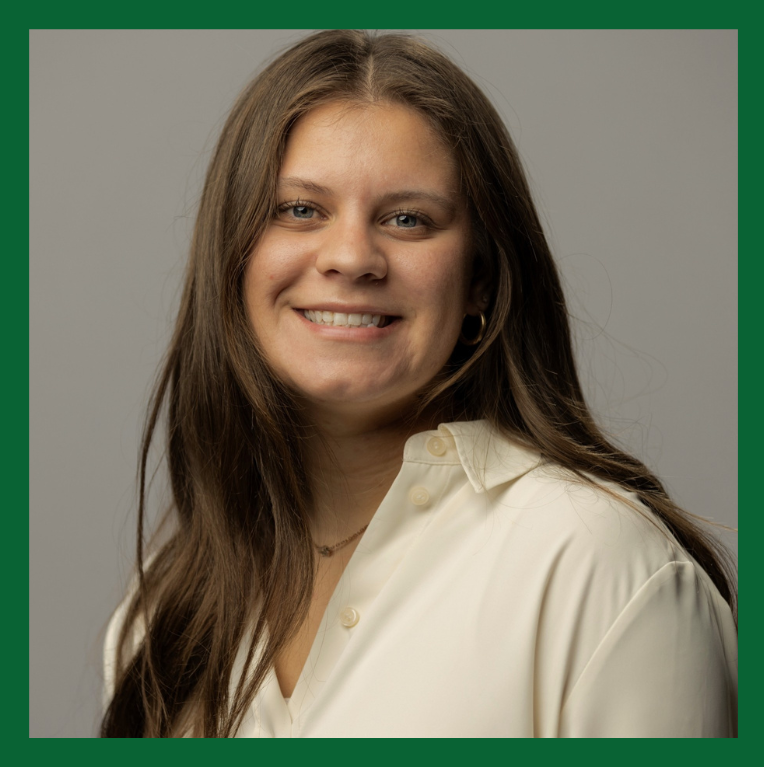
Biography
Katie is a communicator passionate about connecting people to public lands through storytelling, outreach, and programming. With a Bachelor’s of Science in Wildlife Ecology and Life Sciences Communication, and a Certificate (Minor) in Environmental Studies from the University of Wisconsin-Madison, she brings a blend of scientific understanding and communication strategy to her work in natural resources. Currently, Katie serves as the Communications and Development Associate at Driftless Area Land Conservancy, where she supports land protection through communications and fundraising. Previously, Katie held roles with the Ice Age Trail Alliance as a Field Engagement Intern and with the Department of Life Sciences Communication at UW-Madison as a Science Writing Intern. She has also been involved with Ducks Unlimited’s University Advocates and the Ice Age Trail Alliance’s Trailblazers program. Given Katie’s professional and personal experiences, she believes that access to nature should be both physical and emotional. She also sees communication as a powerful tool to bridge gaps between communities and the outdoors. Katie is beyond excited to join TAP, where she can continue to grow and collaborate with others who share these passions.
Katie’s career aspirations
I aspire to be a leader in natural resources communication, with a focus on connecting people to public lands through programming and storytelling. I want to create content and experiences that meet people where they are and inspire a deeper connection to nature and stewardship. This goal is deeply tied to the mission of the National Trail System and other public lands. Trails are more than just recreational spaces. They are platforms for education, belonging, and activity. Through roles in outreach, communications, and fundraising, I hope to support the continued visibility and accessibility of these spaces.
Why do you care about trails?
I care deeply about trails because they’ve shaped both my personal and professional journey. Growing up near the Kettle Moraine State Forest in Wisconsin and the Ice Age National Scenic Trail, I was surrounded by accessible outdoor spaces that offered peace and a sense of belonging. Trails were always an outlet for me where I could slow down and reconnect with myself. As I’ve “grown-up”, that personal connection evolved into a professional passion. I now see trails not just as paths, but as powerful tools for community building and education. Trails are for everyone and offer a space for healing, exploration, and stewardship.
What is a memorable trail experience you’d like to share?
One of my most memorable trail experiences was blazing a new section of the Ice Age National Scenic Trail in Rib Lake, Wisconsin. I had never been to Ribe Lake before, which made the experience feel like a true adventure. I joined an incredible group of volunteers who felt more like a family than strangers. Their dedication to the trail was inspiring, and I learned so much just by working alongside them. There was something very powerful about physically shaping a trail others will walk for generations to come. But it was not just about labor. We laughed, shared meals, and walked our newly blazed section. That experience deepened my appreciation for the trail community and reinforced my belief that trails are more than paths through nature.
What drew you to the Trail Apprentice Program?
The Trail Apprentice Program is a blend of professional development, community engagement, and trail advocacy, which are all things that deeply align with my personal and professional goals. As someone who has worked in conservation communications, I am always seeking opportunities that allow me to grow as a leader while contributing to meaningful work. TAP offers programming where I will be collaborating with others who deeply care about public lands. I am especially inspired by having the opportunity to work with PNTS Staff on storytelling, social media, and general communications. This feels like a natural extension of the work I love. More than anything, I am excited to be part of a community that cares so deeply for trails as pathways of people, culture, and ideas.
